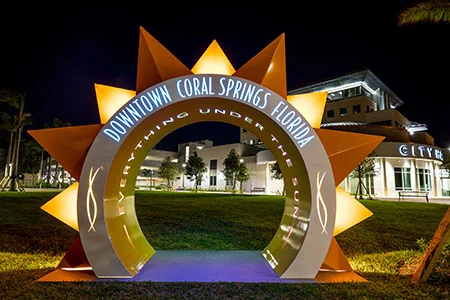What should our community look like?
The City of Raleigh, NC is devoted to providing the highest quality services to all employees and citizens. About four years ago, the city realized they needed a process to package the immense amount of data being tracked and communicate it effectively. This began their process of searching for strategic frameworks that have been proven to work for other organizations, with the plan of then turning it into their own.
The framework the City of Raleigh came up with was "Envision. Enact. Evaluate. Engage." Each of these categories has a list of questions that are important to have at the forefront as they think about strategy and performance at the city-level. For example, under Envision, questions would revolve around: "What does our community currently look like?", and "What do we want it to look like?". Each of these questions are then addressed by associated tools or strategies, such as a Mission and Vision statement or Organizational Values. Finally, the categories reveal key takeaways like areas to focus on, or places to allocate resources.
Envision
The "Envision" part of Raleigh's framework has three main components: context, focus, and allocation of resources. Each category aims to answer fundamental questions, such as:
- Context - What is happening in our environment? What do we want to look like?
- Focus - What new results do we want to see? How will we know if we are successful?
- Resources - What funding do we need to achieve our goals? How will we allocate those resources?
These questions, among others, are addressed through two city plans: Strategic Plan for corporate strategy and 23 Departmental Business Plans that are reported to the City Manager. The city realized the departments needed a robust system to track their work. Monica Croskey Chaparro, Strategic Planning & Performance Manager, mentioned, "If we don't offer them [departments] an opportunity to voice the things that matter to them, they will start to resent the strategic plan. So, it's really important that you build a process and program that gave out departments an opportunity to voice what matters to them."
These plans are rooted in environmental scanning and focus on SWOT and PEST analyses, allowing individuals to leverage the strengths and opportunities and mitigate weaknesses and threats. Right now, the Strategic Plan and departmental business plans are tracked in ClearPoint and shared internally, but the goal is to be able to eventually share externally.
Enact
One question Raleigh's Strategic Plan allows the city to answer is: "Where do we want to go?" By understanding the answer to this question, the city can use their plan to begin doing the work outlined. The "Enact" phase is focused on partnering with stakeholders to implement outlined initiatives and collect data for identified performance measures.
Each of these cross-departmental initiatives are tracked entirely in ClearPoint. One example is around "Healthy Aging and Lifestyles and Substance Abuse." The teams learned of a need for more urban agriculture and about the current food insecurity in the community. So, one of the things that they came up with through the strategic planning document was the need to collaborate with several different organizations externally, but also internally to say, "How can we provide kids and our lower socioeconomic areas that don't actually have access to good food with the ability to learn more about food and provide access to it?"
Ultimately, through departmental collaboration, a successful program was created with local food banks that has City employees and citizens excited! With over 220 people in ClearPoint implementing the Strategic Plan, organization is a requirement for successful reporting.
Evaluate and Engage
The City of Raleigh aims to evaluate progress while also engaging stakeholders around overall progress and meeting expectations. As part of the city's performance management efforts, the city has an active Stat program, CORStat (City of Raleigh Statistics), to ensure appropriate progress is being made on addressing the Strategic Plan goals. These CORStat meetings provide a forum structure for discussing citywide performance measures, initiative team's progress on Strategic Plan initiatives, and allows cross-departmental problem-solving and information sharing.
Additionally, the city has a robust Strategic Planning and Performance Analytics Academy that provides specific training opportunities that support the city's ability to meet its strategy and performance management goals, related to ClearPoint and non-ClearPoint activities. The Academy has covered over 20 topics in a 3-year span, while also reaching 100% of city departments!
Raleigh Moving Forward
As Raleigh moves forward, the Strategic Planning and Performance Team reiterates the importance of the executive support they have. What makes Raleigh unique is they are not stuck on copying and pasting best practices. They like to be aware of those practices, but they like to turn them into "Raleigh's Best Practice."
The city aims to continue ensuring alignment exists across the organization with departmental and corporate initiatives. Through Analytics Academy topics that support business needs, they are furthering staff engagement and understanding while creating a culture around performance management. The city's north star has always been, and will remain, to consider the needs and interests of stakeholders, from elected officials to employees to citizens.
Additional Case Studies

City of St. Cloud, Florida


City of Bartlett, Tennessee


City of Coral Springs, Florida


.svg)
